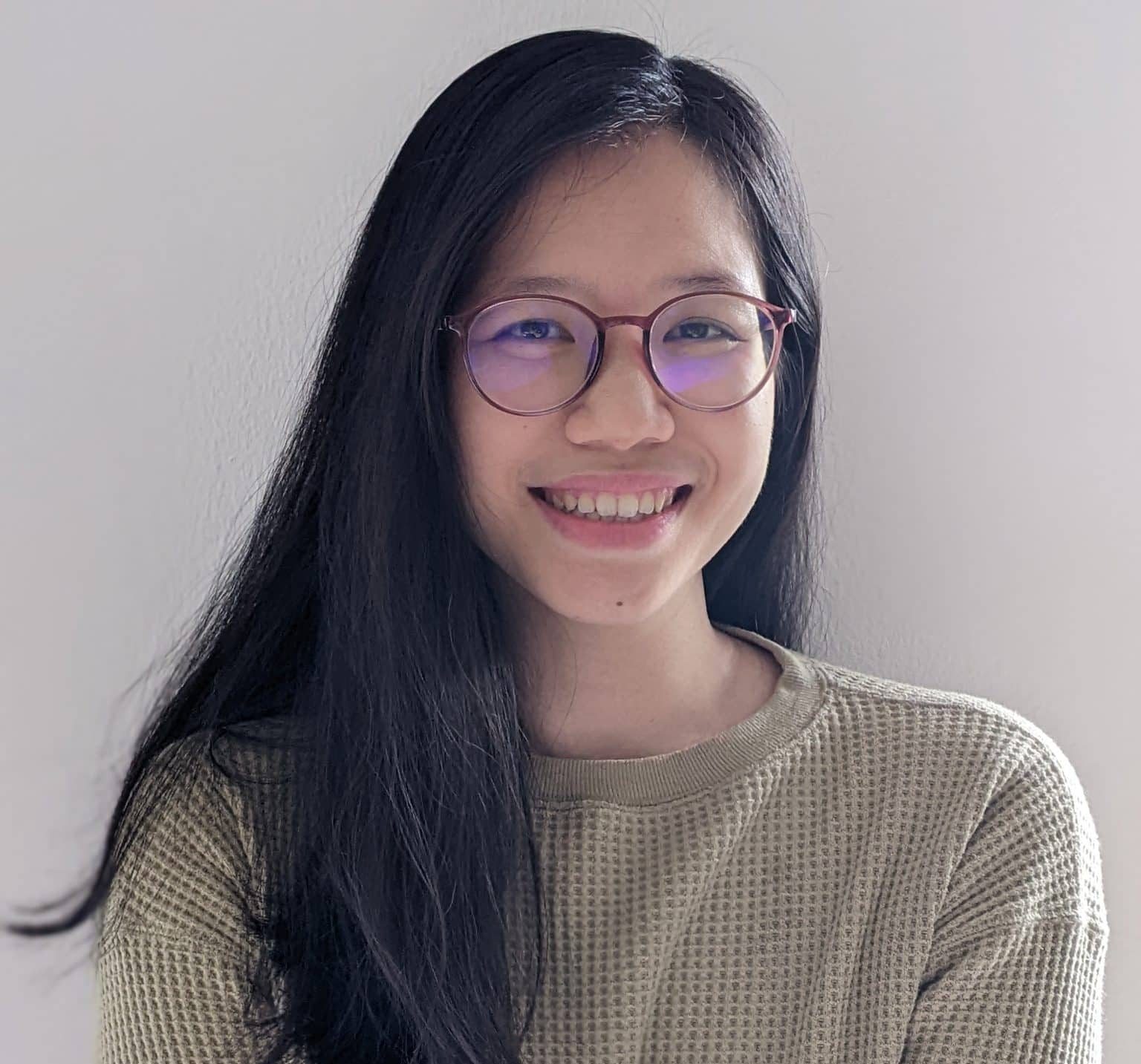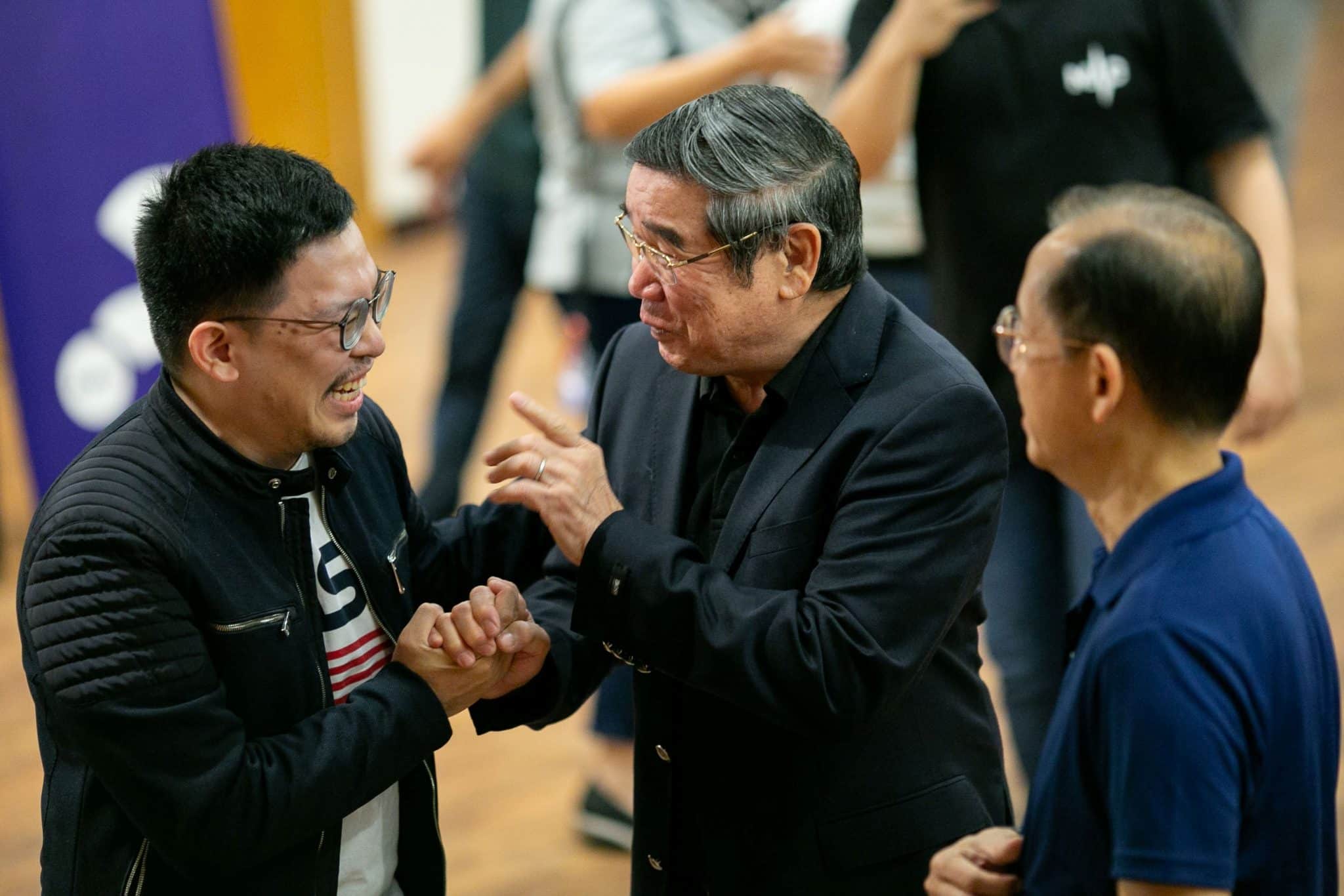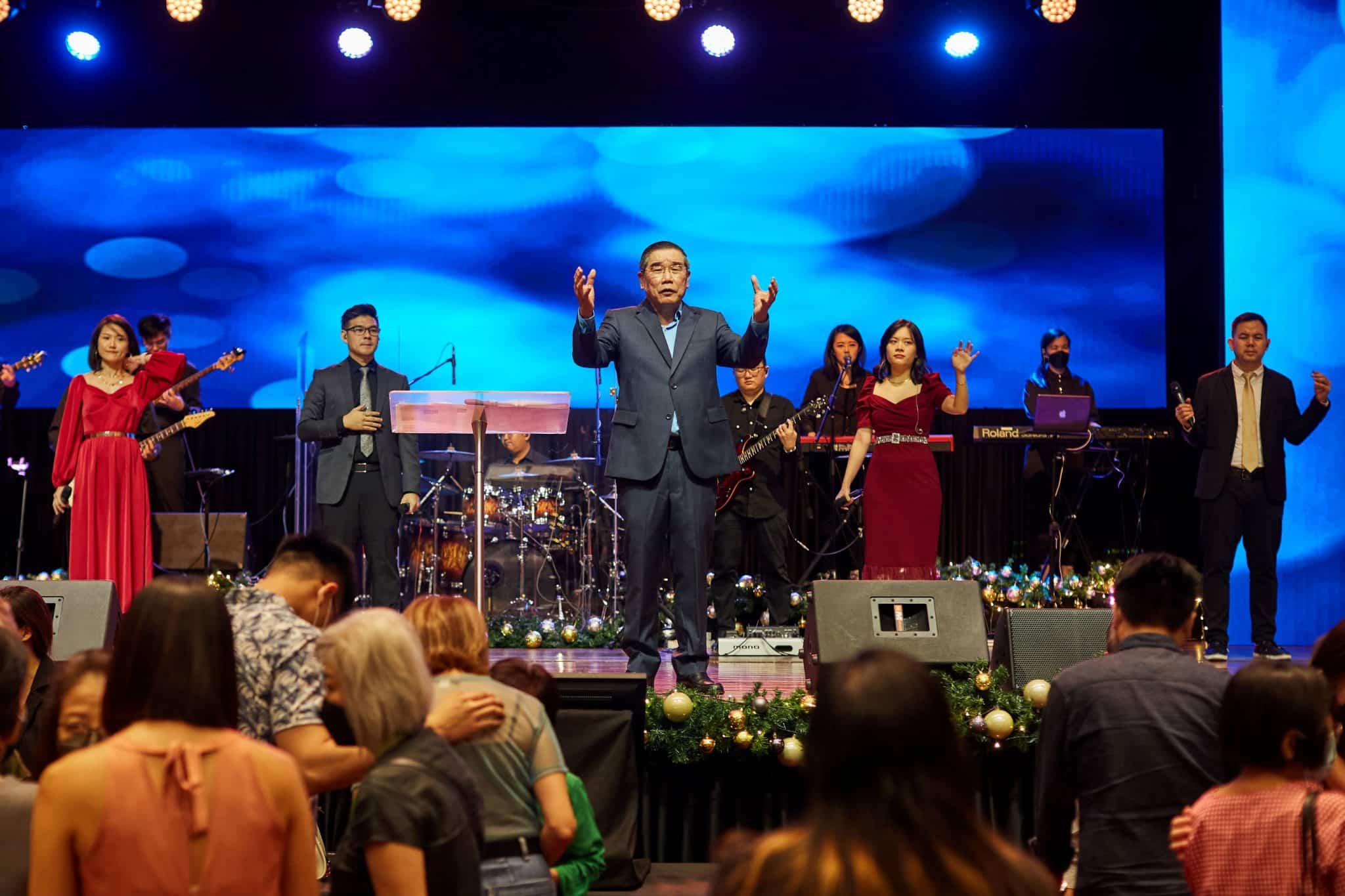“How do I make my faith practical? That’s what I’m always asking”: Paraplegic urban farmer who feeds the less fortunate
Via the Salt&Light Malaysia desk
Michelle Chun // April 23, 2024, 10:59 am
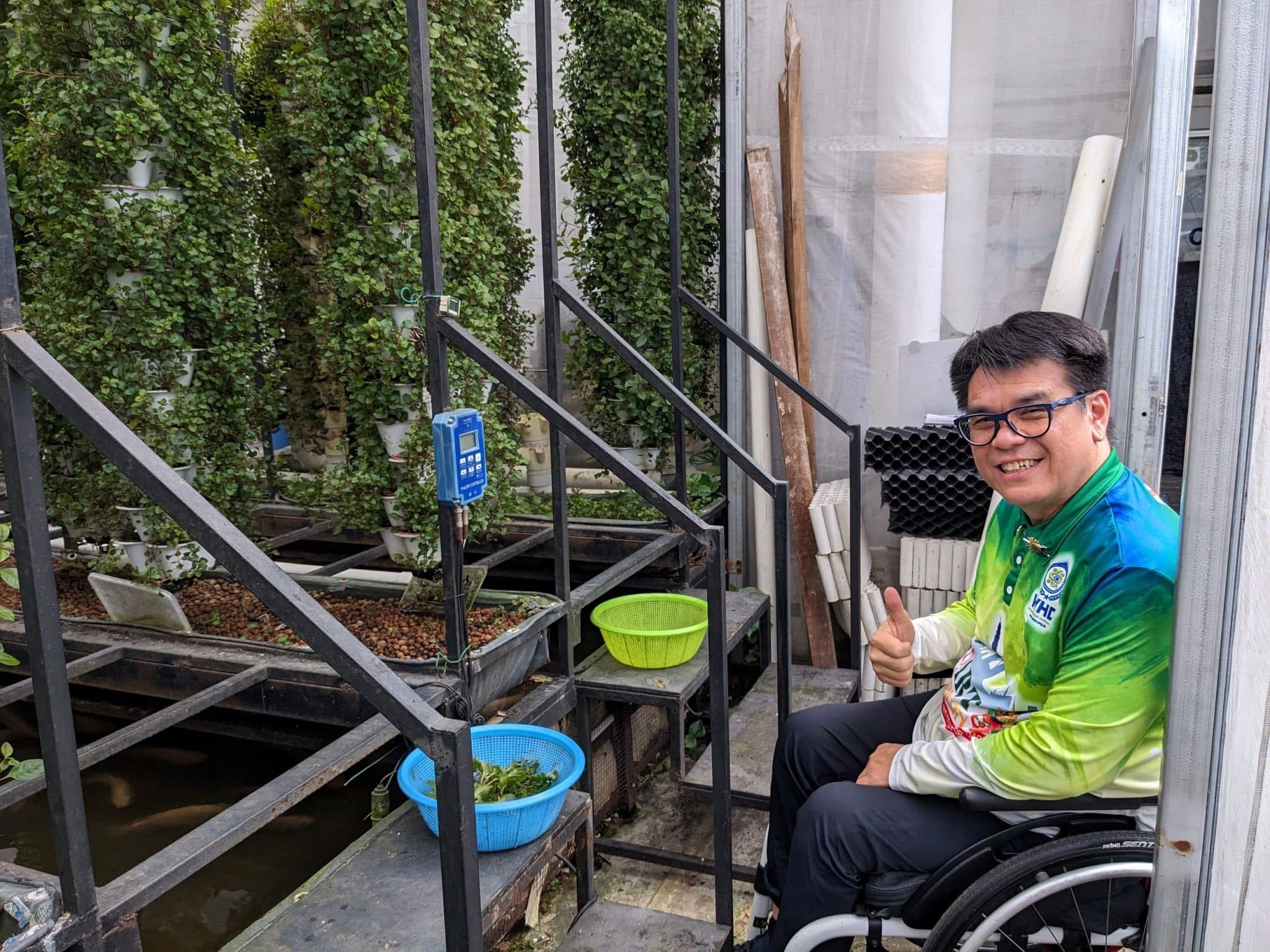
After a life-changing accident that left him a paraplegic, Dr Billy Tang now uses his knowledge and skills in agri-innovation to uplift persons with disabilities and marginalised communities. All photos courtesy of Dr Billy Tang.
Dr Billy Tang has a deep interest in the world beneath our feet.
“Out of nature’s gifts to mankind, none may be so utterly essential to human life as soil. It’s where our DNA comes from. Soil health is an answer to restoring our biodiversity and planetary health,” said the Malaysian research-preneur and award-winning agriculturalist.
The founder of Malaysian social enterprise PWD Smart FarmAbility is known for his work in regenerative carbon farming, as well as for innovating the world’s first self-sustainable vegetable terrarium, HOPE Box.
The HOPE Box is essentially “a greenhouse in a box”, explained Dr Tang. To maintain it, one does not need any farming experience or fertiliser. It only needs to be watered once in two days and given ample sunlight.
“It’s a gift that keeps on giving – a harvest of organic, naturally-grown vegetables without a farmer,” said Dr Tang, who believes that God has provided all that humanity needs to thrive through nature.
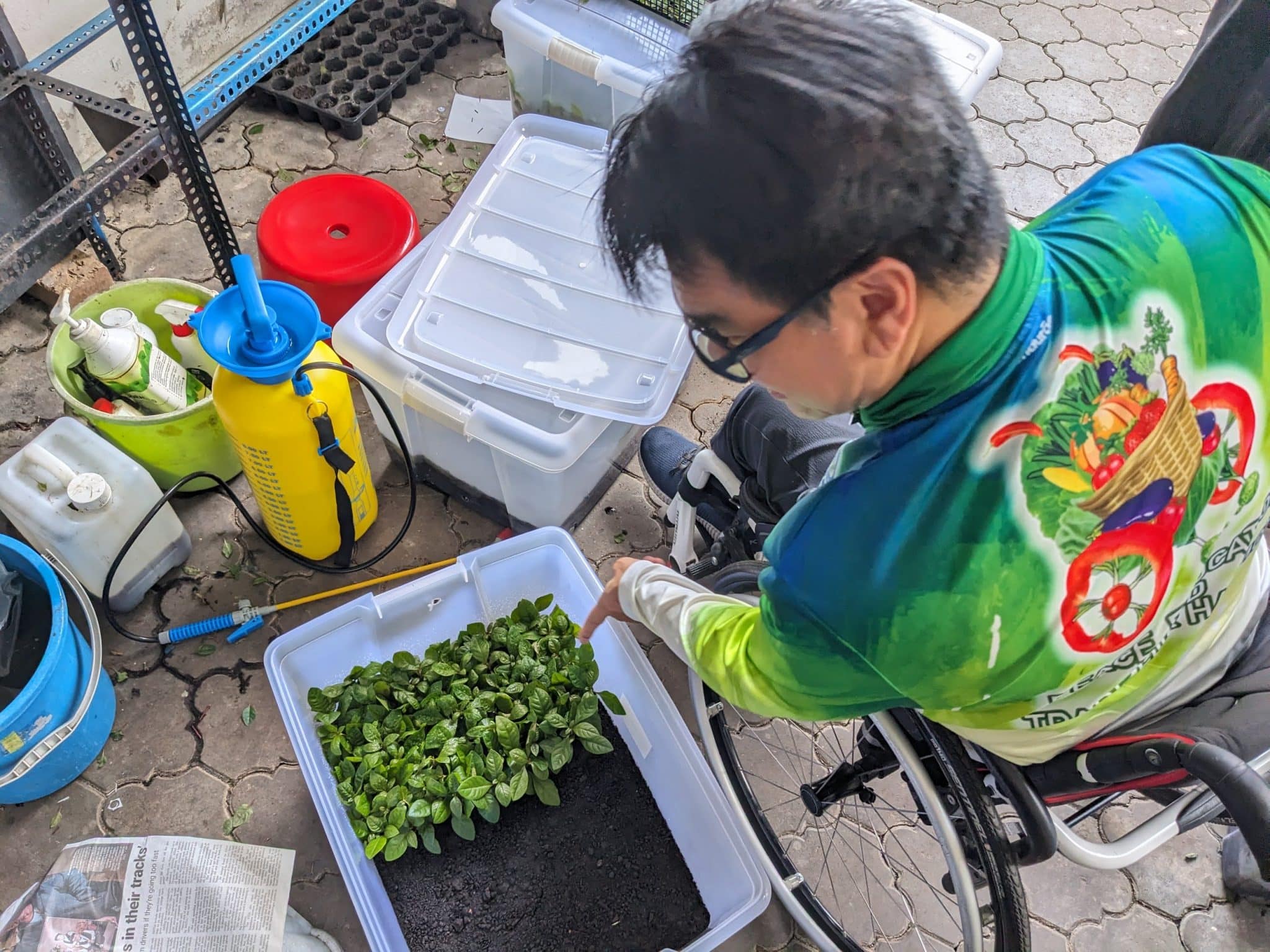
The world’s first regenerative organic vegetable terrarium requires no fertiliser or farming knowledge to yield a harvest of 1-2kg per month.
The HOPE Box is designed to address both food security (in Malaysia, one in five children below five years old are stunted) and environmental concerns, tackling two of the world’s most pressing issues simultaneously, he said.
Regenerative organic vegetables such as Brazilian spinach, red watercress, New Zealand perpetual spinach and sayur manis (sweet leaf) are among the varieties planted in the HOPE Box, which also captures and stores carbon.
“Low-income families can now forage 1-2kg of vegetables every month without fertiliser for at least one year. This is without refrigeration, and it’s zero-energy, zero-miles diet and zero-waste. Our longest box has yielded a harvest for three years and counting,” he said.
A second chance
With a background in forestry, biotechnology and sustainable agricultural practices, Dr Tang discovered his passion for soil biodiversity in the 2000s after he was tasked to plant 100,000 teak trees along the country’s highways.
In 2015, however, life came to a grinding halt.
At 49 years old, the father-of-two met with a serious car accident that injured his spinal cord, broke six of his ribs and left him blinded in one eye for a year. He is now paralysed from the waist down and uses a wheelchair to get around.
“Even as I speak, I am in excruciating pain 24/7,” he said.
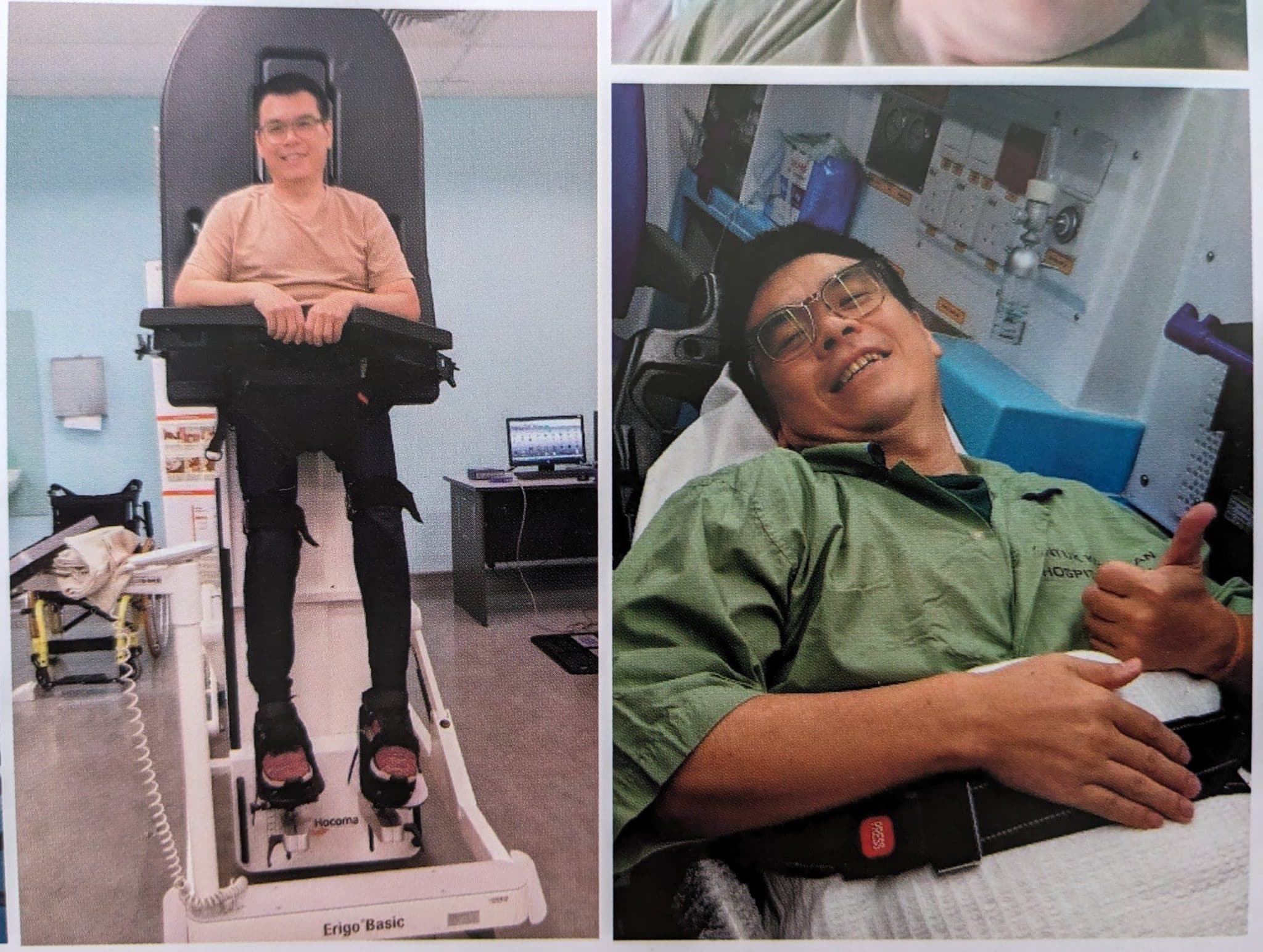
In 2015, Dr Tang met with a serious car accident that left him paralysed from the waist down.
But it was at his lowest point that God showed him the way up.
“Jesus went around feeding people and meeting needs first.”
A strong believer, Dr Tang wanted to express his gratitude to God for preserving his life.
“My rehab physician saw my credentials and encouraged me to use my skills to advance the disabled community in Malaysia, having become a PWD (person with disability) myself,” Dr Tang said.
With the zeal of a man reborn, he threw his energy into agri-innovation, seeking to arm the poorest with the ability to feed themselves sustainably.
Agriculture was no longer just about farming but cultivating health. Following in Christ’s example, he strives to impact life in practical ways, which the tagline of his social enterprise – Nutrition Can Save A Nation – aptly embodies.
“Jesus went around feeding people and meeting needs first. Today, we tend to try and force our beliefs on others instead of sowing seeds (showing God’s love through meeting practical needs),” Dr Tang said.
Organic, nutritious food for the less fortunate
Noting that the underprivileged in Malaysia do not have much access to healthy, natural foods, Dr Tang, through his social enterprise, has distributed more than 7,000 HOPE Boxes to underserved communities, single mothers, government-led schools for children with special needs (PPKI), and marginalised and needy communities.
He has also rolled out two other initiatives to increase the underprivileged’s access to organic food. The first is a farm that breeds freshwater tilapia, which can weigh up to 2kg each, without the use of hormones or antibiotics.
The second is the Soil-U-Tion Satellite Farms System, which allows communities to enjoy ethically farmed fish and organic vegetables with minimal farming knowledge. The system combines soil technology, aquaculture (breeding fish in an enclosed environment) and hydroponics (growing of plants, usually without soil) methods to create a symbiotic system.
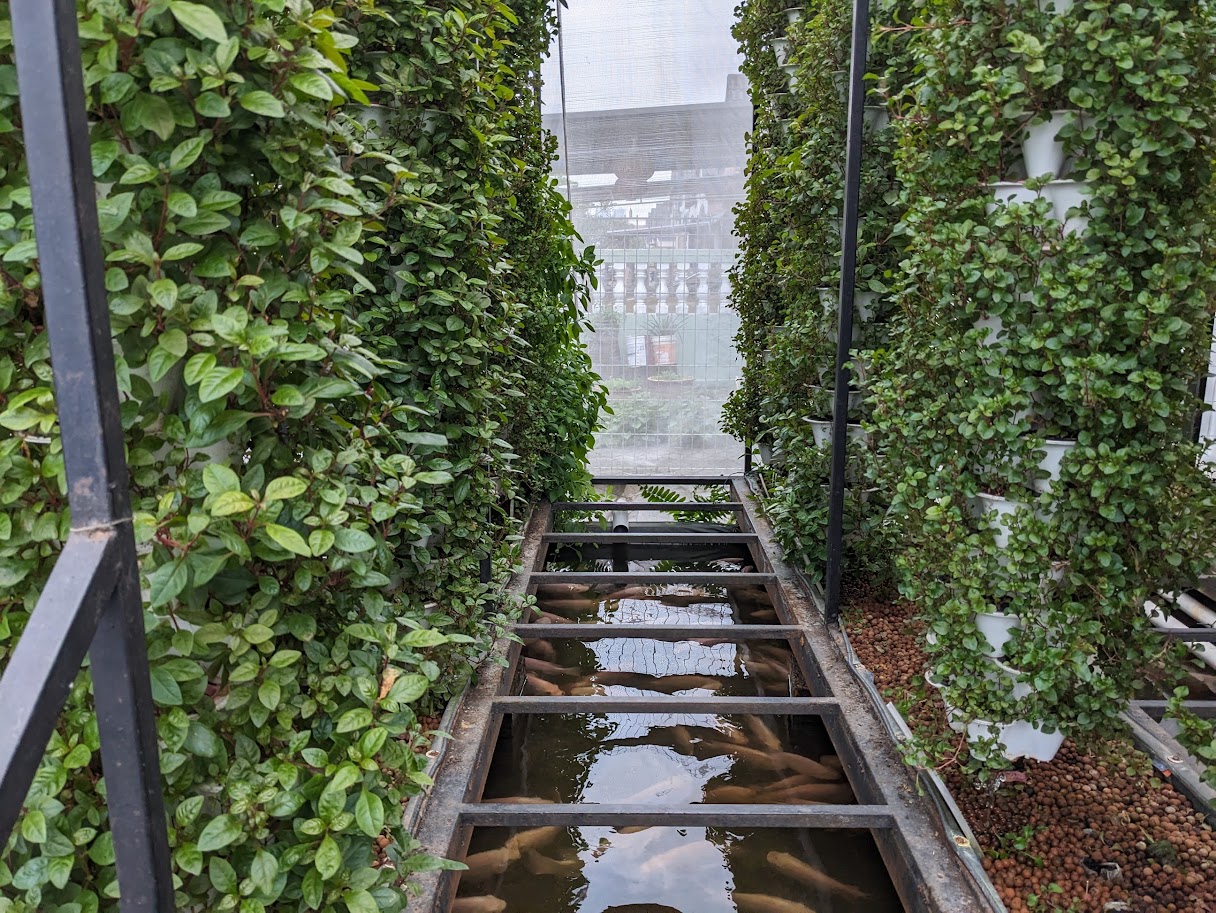
Dr Tang’s Soil-U-tion aquaponics satellite farm combines soil and soil-less farming into a symbiosis recirculating system to make nutritious food accessible to the poor.
There are currently 20 “dummy-proof” Soil-U-tion satellite farms deployed across partner institutions such as welfare homes, orphanages, youth correction centres, homes for the disabled and elderly, and PPKI schools.
In a span of two years, over 7.5 tonnes of vegetables were harvested from the terrariums, while the 20 satellite farms produced 655kg of tilapia and 7.65 tonnes of fresh vegetables.
“For example, one home for seniors used to spend RM1,800 (S$513) on vegetables. Now, with the satellite farm, they only spend RM400 (S$114), with the rest harvested through 33 HOPE Boxes,” he said enthusiastically.
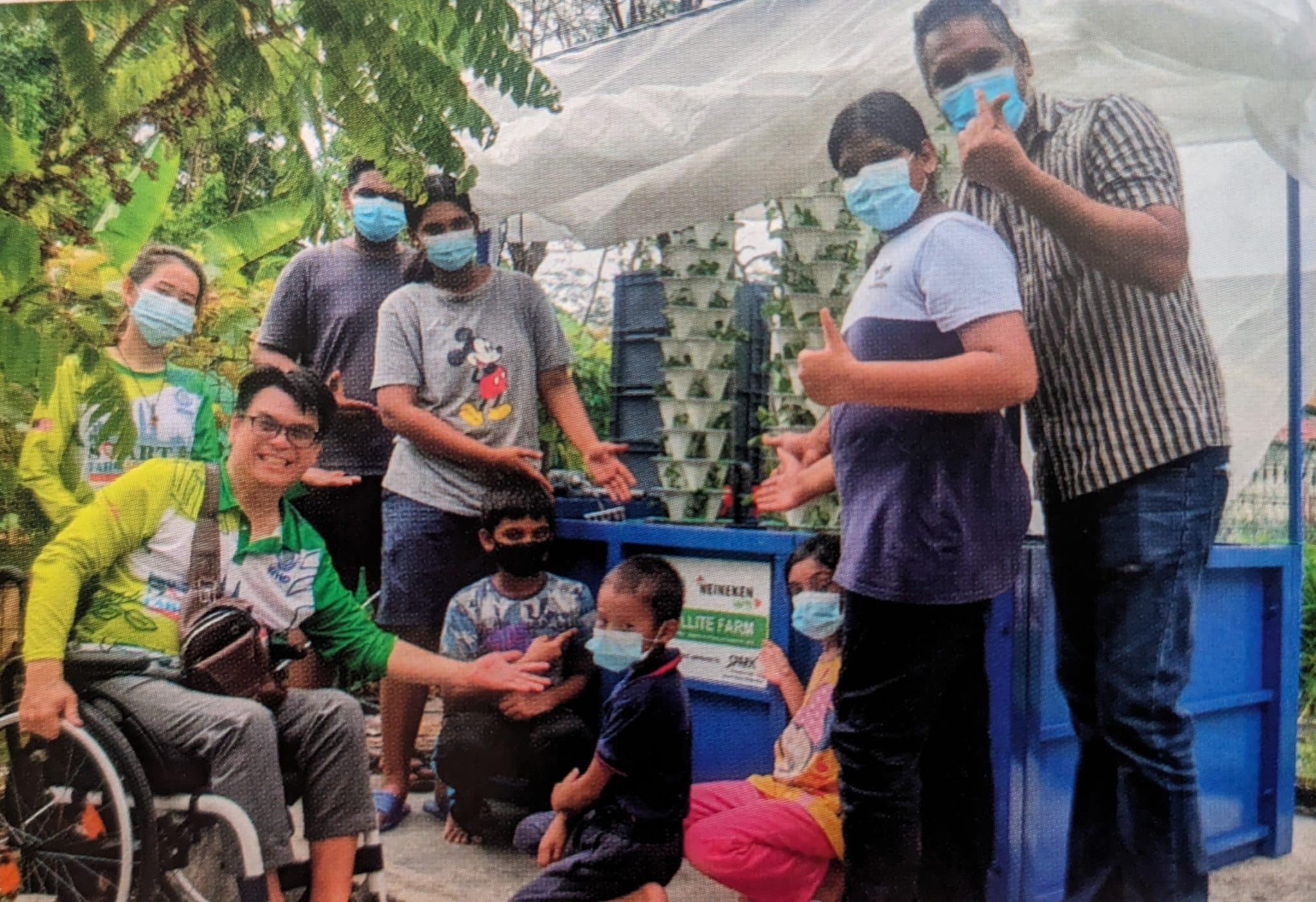
Dr Tang at a foster home in Malaysia with the Soil-U-tion satellite farm that provides fresh vegetables and tilapia to its residents.
On top of an organic harvest, the home’s residents also enjoy fresh tilapia weighing between 700g and 1.2kg every six months.
To maximise impact, Dr Tang also involves vulnerable and low-income communities in his business.
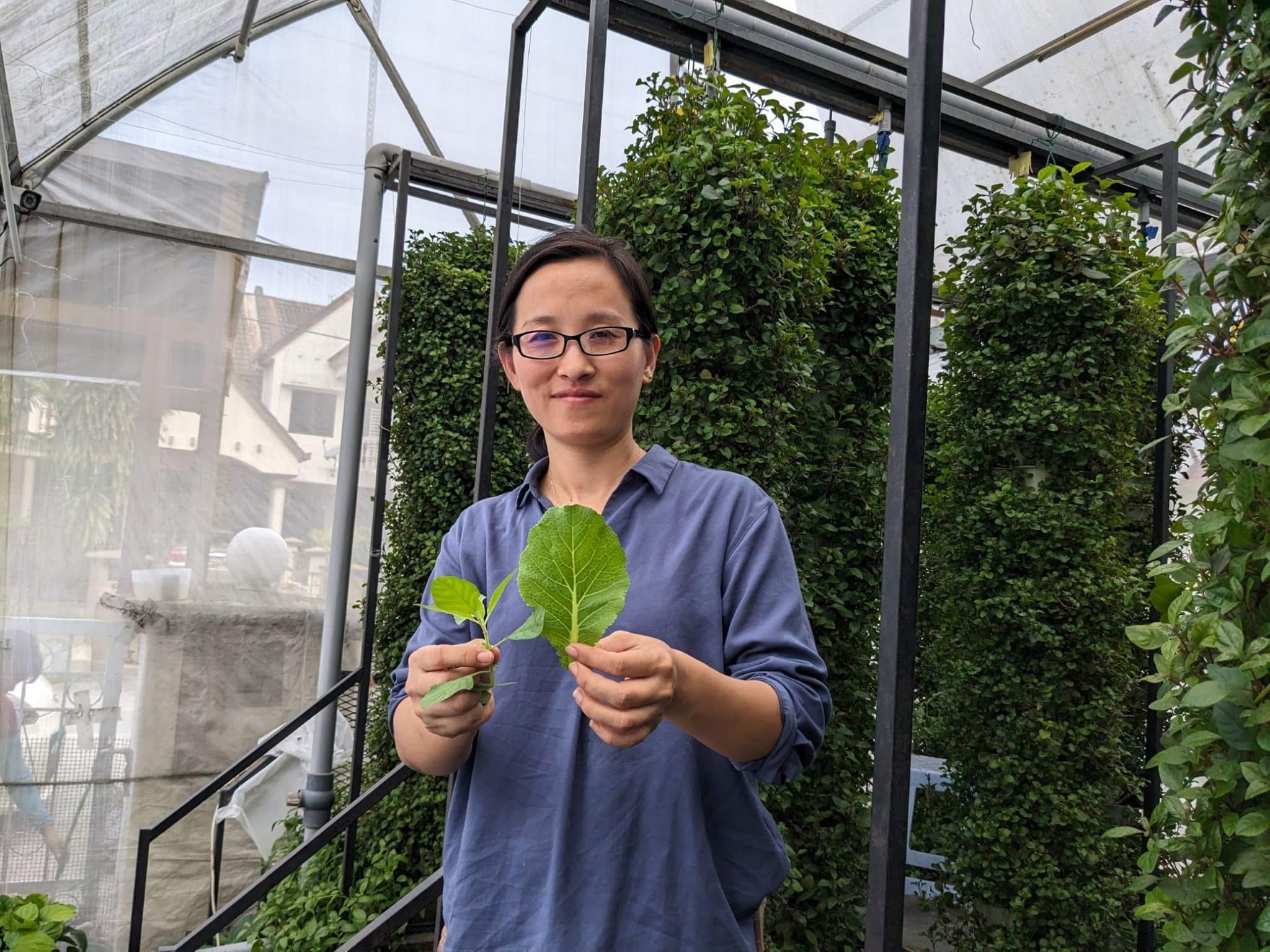
Nang Hee Hkaw Dang, a UNHCR card holder from Myanmar who has been trained in regenerative farming and basic soil health practices, holding fresh Japanese mustard and peppermint leaves at PWD Smart FarmAbility’s farm.
For example, he upskills PWDs and trains UNHCR refugees in agricultural-based practices at his home-based smart farm in Subang Jaya.
“We train refugees so that when they are eventually resettled in other countries, they have skills and knowledge that can impact the community,” he said.
A “yes” for every “no”
Dr Tang’s work has garnered international acclaim.
Aside from many local and regional recognitions, he is the recipient of the Regal British Award 2022 by the World Humanitarian Drive in conjunction with Her Majesty Queen Elizabeth II’s Platinum Jubilee Celebrations in London.
He was also awarded the National Scroll of Honour Award for Human Settlements 2022 in conjunction with UN World Habitat Day.
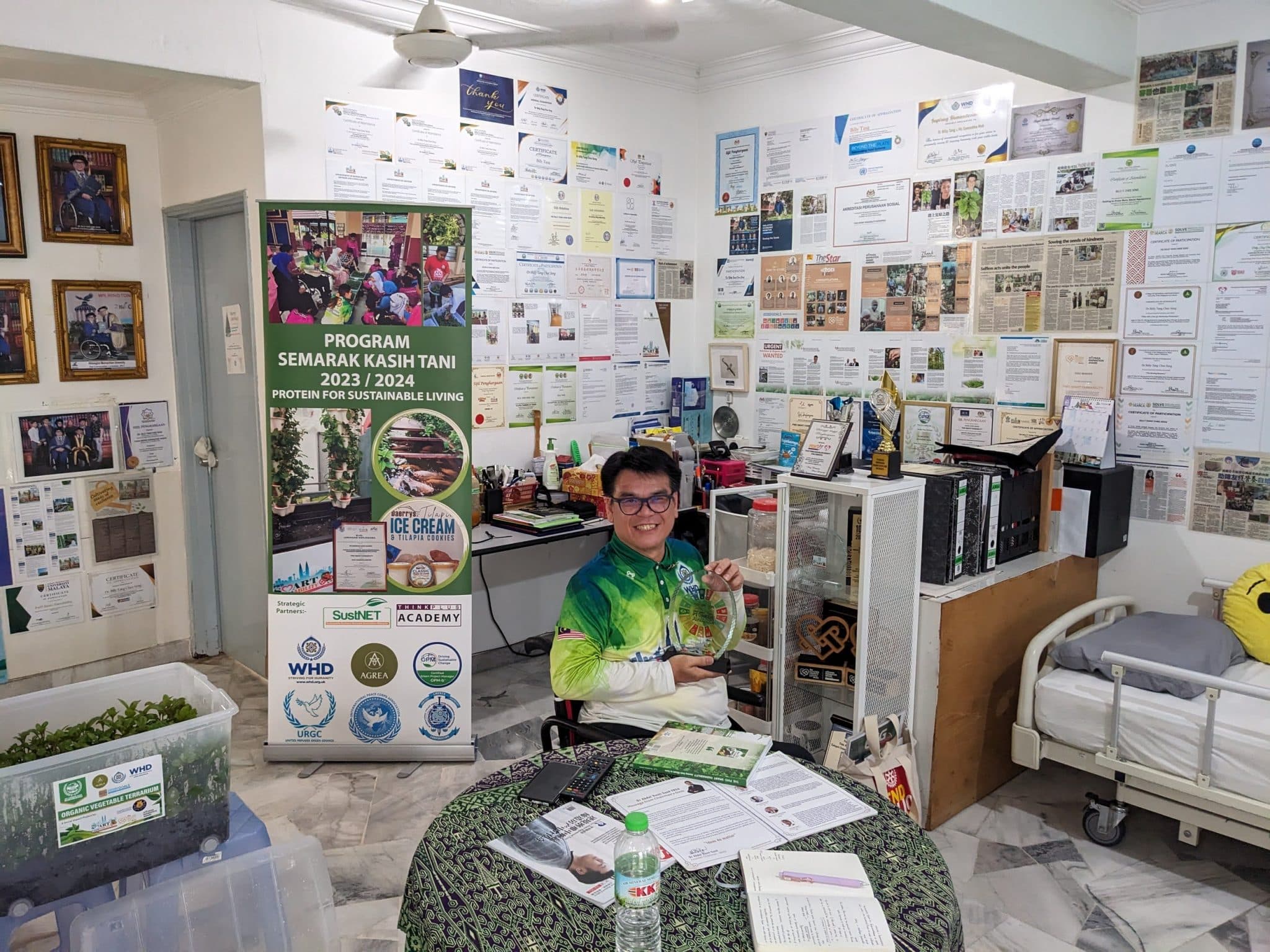
Dr Tang has won many national and international accolades for his work, but all this he sees as an earthly nod to his higher purpose.
He has also been invited to speak on sustainable practices and agriculture-based solutions to food insecurity at various universities, including Yale-NUS College in Singapore.
“God has given all of us gifts and talents. We need to know what they are and multiply them.”
But, for this paraplegic farmer, these accolades are simply an earthly nod to his higher purpose of living out his faith.
“How do I make my faith practical? That’s what I’m always asking,” said Dr Tang. And his answer is always: “Here I am, Lord. Use me.”
To him, the cross is a plus sign that reminds him daily that his life must “add” to those around him.
“God has given all of us gifts and talents. We need to know what they are and multiply them. But if we don’t have a daily encounter with God that affirms our identity in Christ, we cannot be effective,” he said thoughtfully.
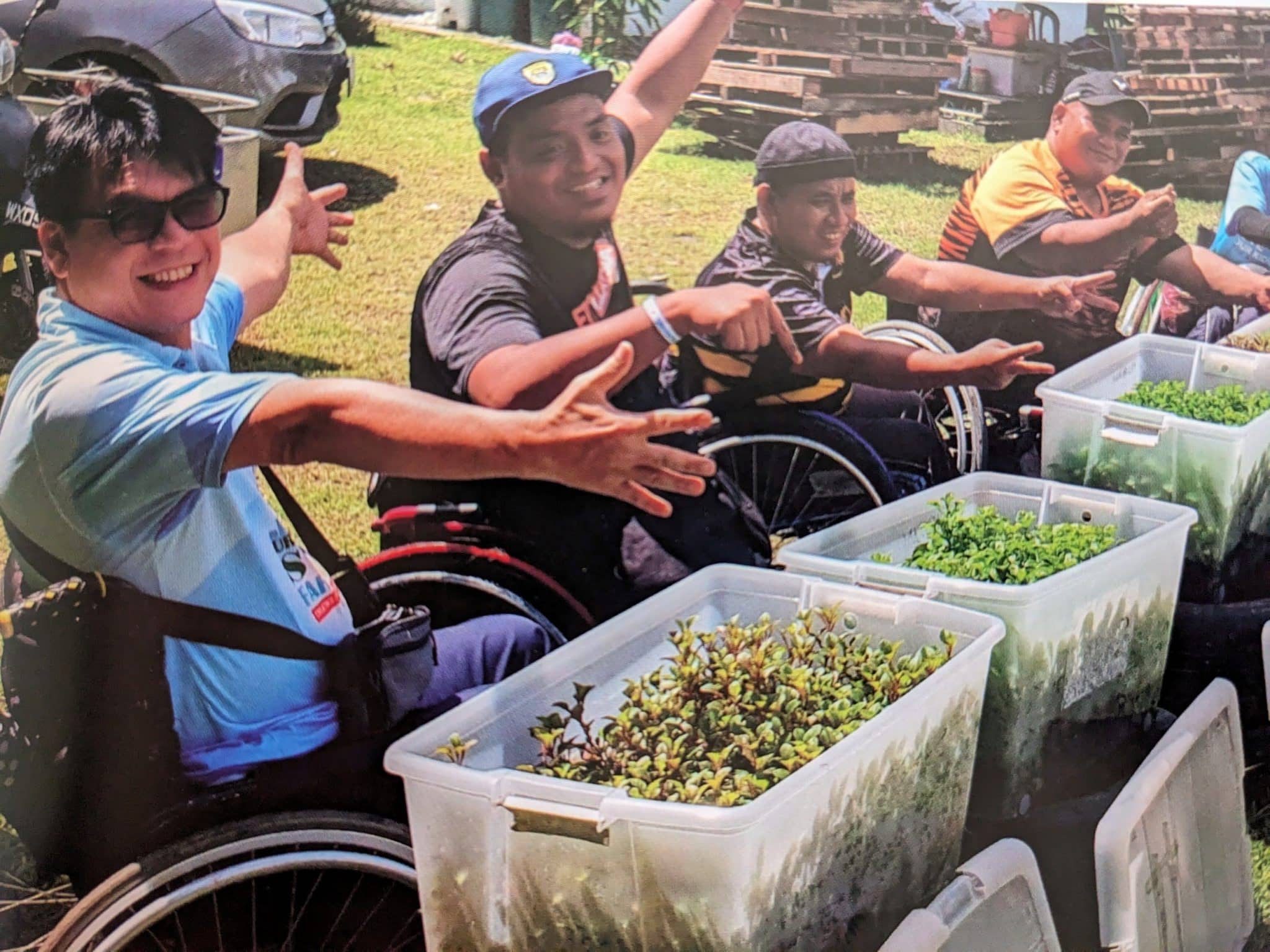
Dr Tang (left) also hopes to inspire a more inclusive society that provides PWD with opportunities to thrive. “If we give PWDs equal opportunity, we can contribute to nation building. If there’s a wheel, there’s a way!” he said.
He believes that we are called to be advocates of God’s creation and live in ways that promote creation care and human dignity.
This includes taking care of our bodies by eating nutritious food, making choices that prioritise the earth’s health (such as saying no to highly processed food, plastic bags or plastic-wrapped foods) and serving the poor.
He realises what he’s up against convenience, capitalism and complacency. But he also knows that he can seek God for wisdom as he innovates new products and systems that create prosperity without harming people or the planet.
He said: “If you want people to say ‘no’ to something, you just have to have a better ‘yes’.”
RELATED STORIES:
How do you love a child who is not your own? Parents who foster with the Father’s heart
We are an independent, non-profit organisation that relies on the generosity of our readers, such as yourself, to continue serving the kingdom. Every dollar donated goes directly back into our editorial coverage.
Would you consider partnering with us in our kingdom work by supporting us financially, either as a one-off donation, or a recurring pledge?
Support Salt&Light